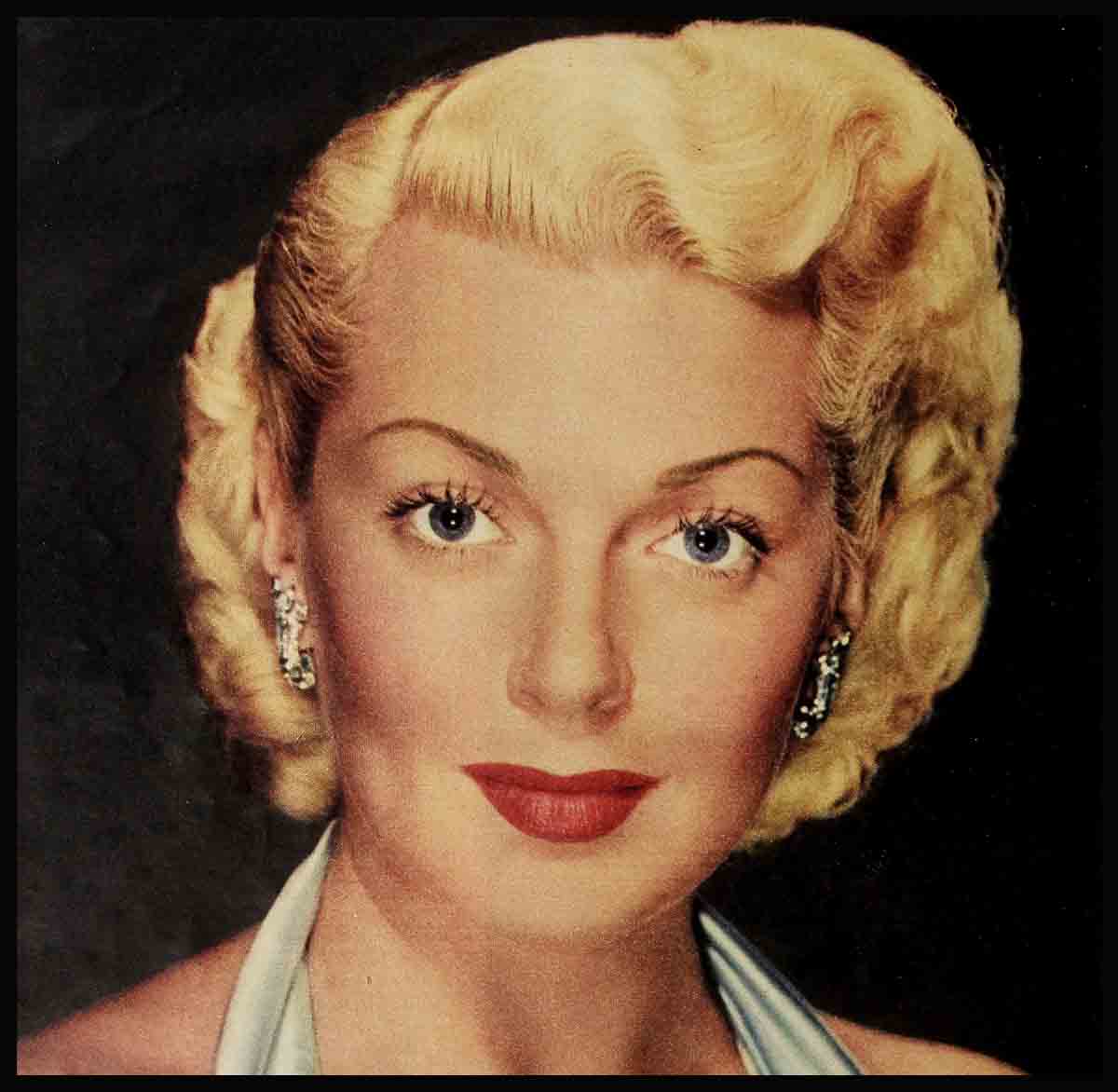
The Sorrows Of Lana Turner
When they told Lana at the hospital that she had lost a baby for the second time, she died a little. And when the shock of that breathless, numb moment had passed and her tears came, it seemed as if they would never stop . . . tears for this unfulfilled promise, and for all the promises of life that had been broken, and for all the sorrows . . . If Lana Turner had ever known happiness at its fullest, it was because she had experienced sadness many times at its depth.
On that Friday night last October when she slipped on her porch and lost her child, another misfortune was added to her lengthy list. If there was anything that she had wanted then or now more than a baby, she couldn’t name it.
Two years ago, when she suffered her first miscarriage, the doctors had told Lana that her chances of having another child were slim, because of the RH factor. “Your blood is RH negative,” the doctors pointed out, “and Mr. Topping’s is RH positive. A child of yours might be born, but it probably wouldn’t survive.”
This RH factor, which plays a great role in Lana’s life, is a sub-type of four major blood types. Nowadays, before blood transfusions are made, the blood of the donor is matched to the blood of the patient, for if the blood doesn’t match after the second transfusion, dangerous
shock reactions result. These reactions also occur if the RH factor doesn’t match, too. Most of the people in this country are RH positive; a small percentage are RH negative, and do not contain the RH factor in their blood cells.
During her first pregnancy, Lana’s body managed to tolerate this antagonistic mixture of blood, and despite it, she gave birth to Cheryl, a healthy child. But the body can’t put up that same fight again, and future pregnancies usually result in the death of the infant before or soon after birth. Lana’s second child was lost because its red blood cells had been destroyed by antibodies produced in Lana’s blood.
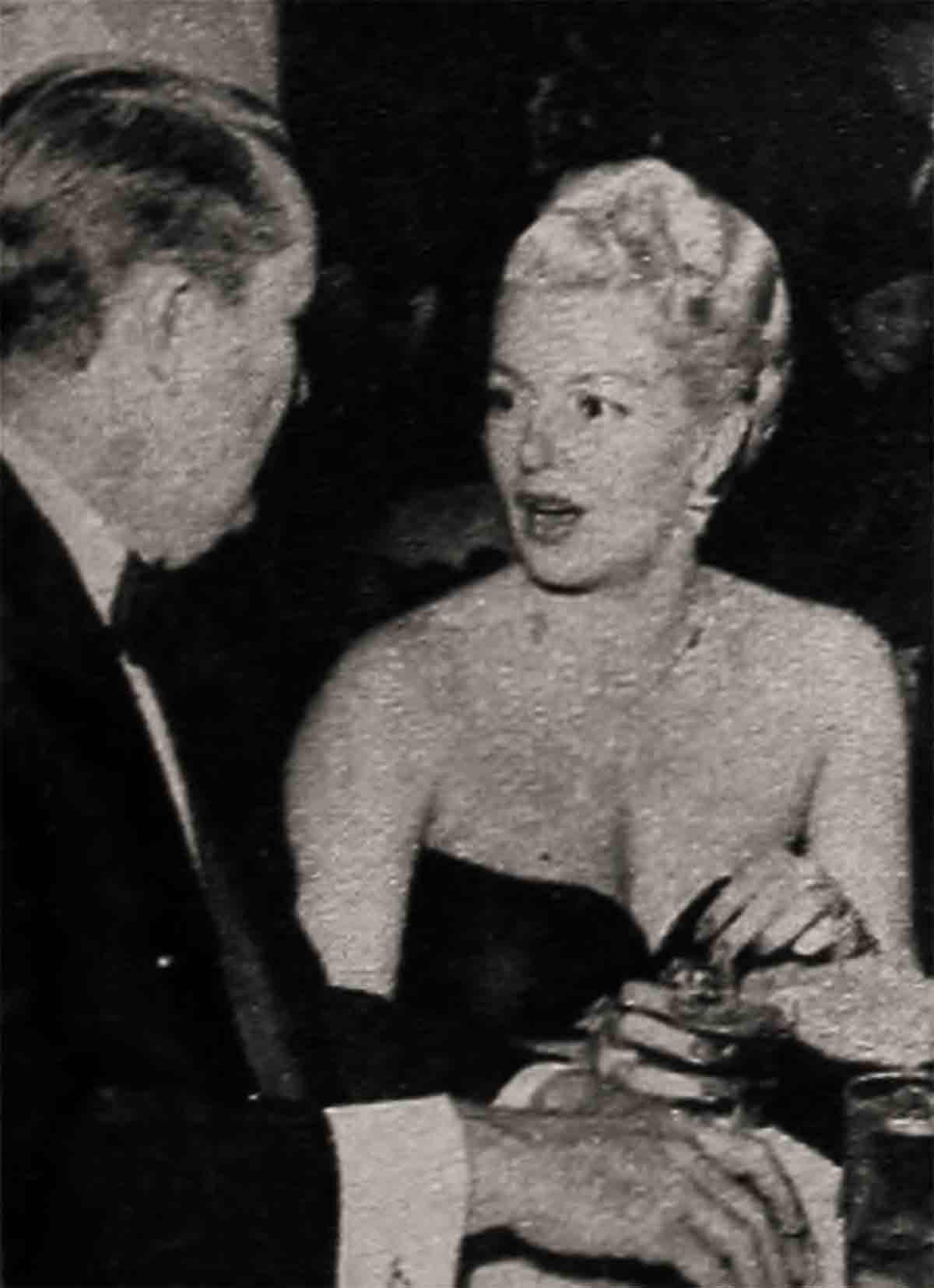
There’s only one way of saving the life of such an infant. As soon as it is born, its own blood is drawn out, and transfusions of new and different blood are injected into its veins.
When Lana became pregnant for the third time last March, her obstetrician told her that this was the only way in which she might give birth to a child and assure its survival.
As part of the regimen, Lana herself would have to take three or four injections per week. “I want another baby more than anything else,” Lana said, “and I’ll do anything possible to make sure it’s healthy.”
The chances of any married couple’s having RH factor trouble are only one in 500. It’s Lana’s luck to be that particular longshot—but all during the six months of her last pregnancy, she never once complained.
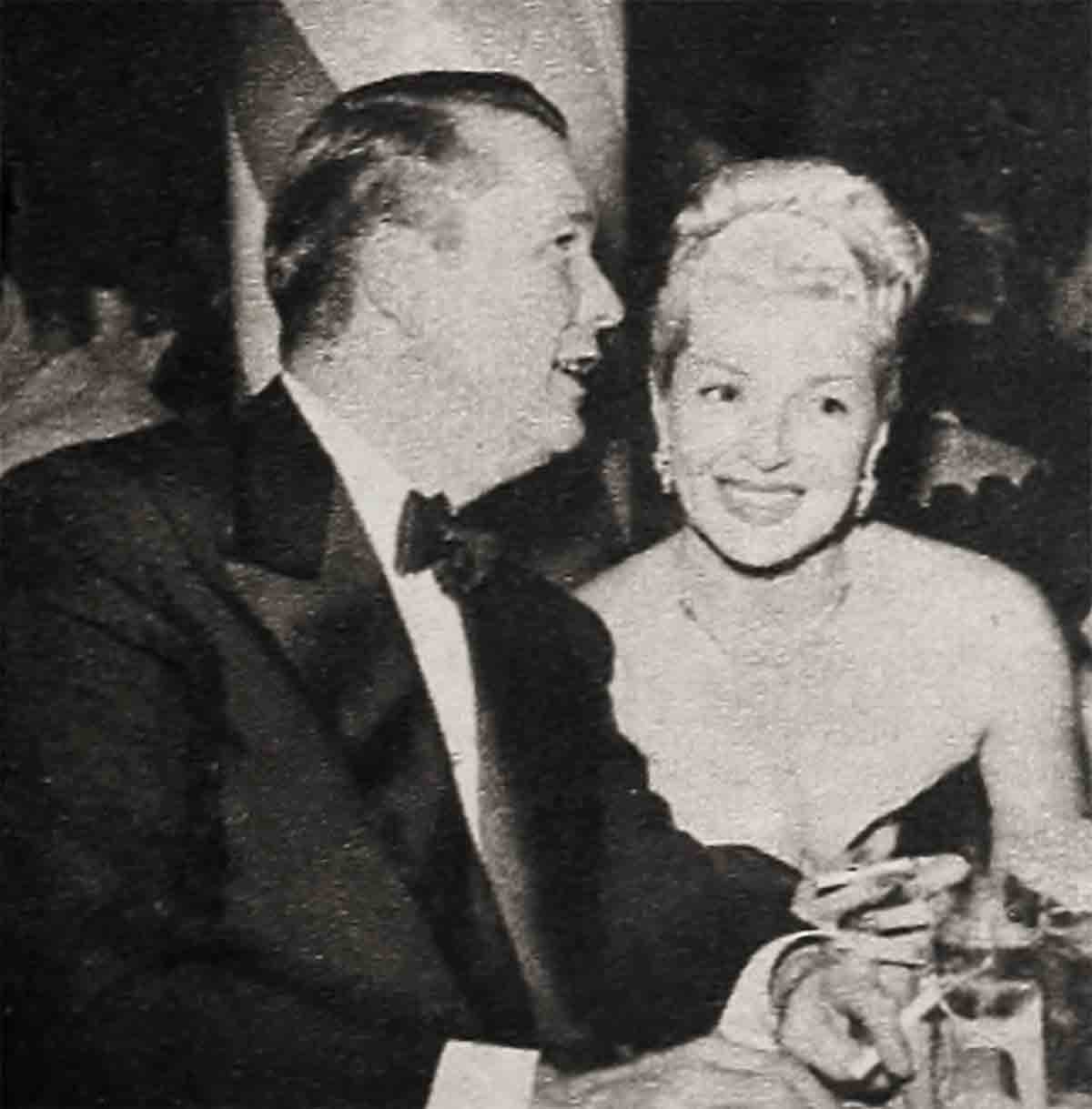
While she was undergoing medical treatment, praying that her might be born alive so that it might be transfused with new blood, she was making Mr. Imperium, with Ezio Pinza.
Everyone was excited about the great Pinza, everyone but Lana. During the picture’s filming, many people began to think that Lana had grown jaded. She seemed to have an almost cathedral-like self-sufficiency about her. Few people knew of the heavy, hopeful secret she carried in her heart.
One afternoon, a reporter came up to her on the set. “Darling!” the reporter exclaimed. “I’ve just spoken to Pinza and he tells me that he falls in love with all his leading ladies.”
Lana merely smiled. In the old days of 1937 and ’38, she might have made a snappy retort like, “That’s nothing. I always fall in love with all my leading men.” This time she was silent.
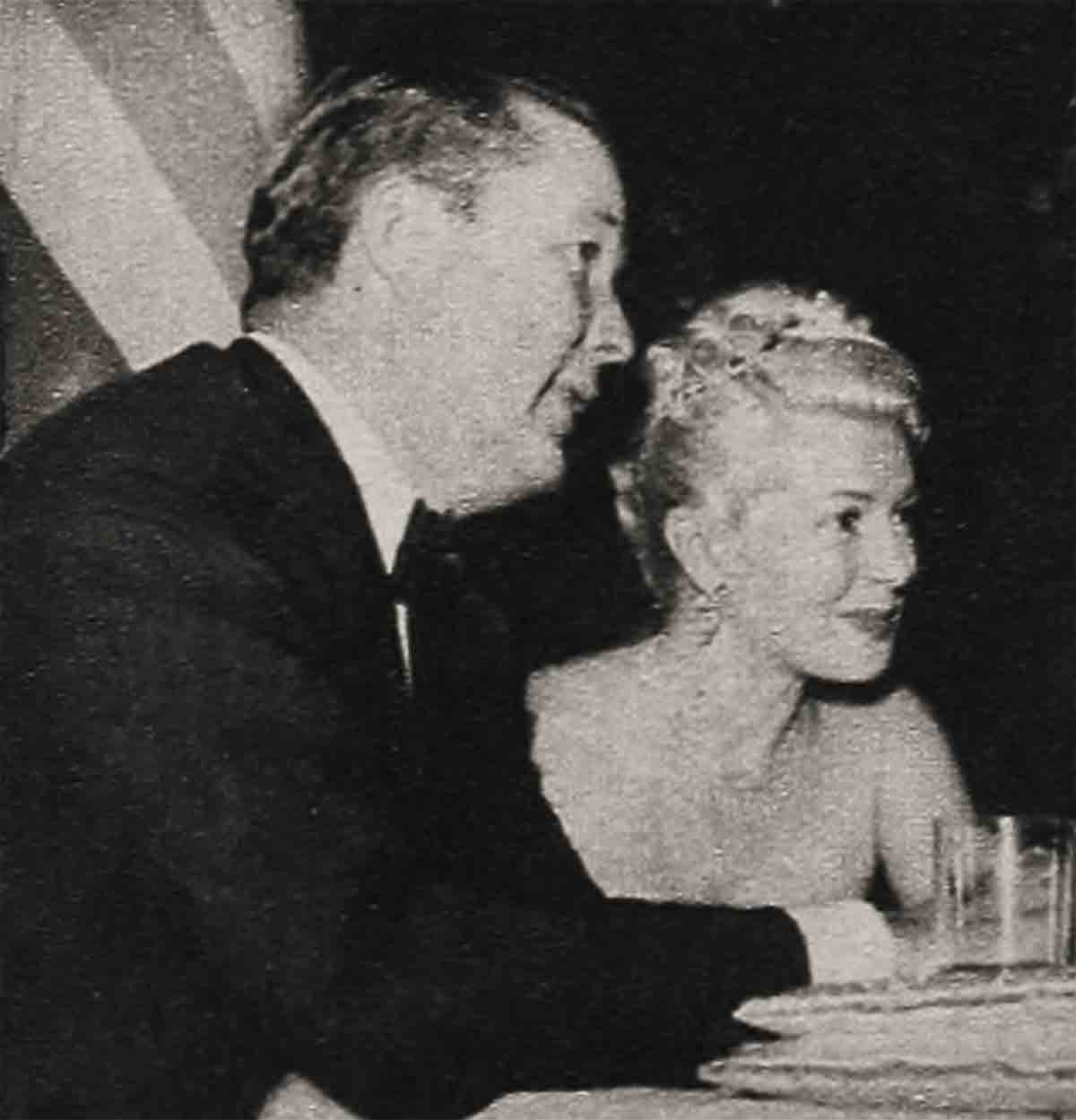
When Pinza planted his first kiss on her, instead of complimenting the 58-year-old lover on his technique as she once surely might have, Lana didn’t say a word. When she left the set, she turned to her makeup man and said good-naturedly, “If he kisses me like that all the time, I’m going to look like a Ubangi. How about getting me some protection?”
A few minutes later, her lips were being covered by a protective padding of undetectable plastic. In the old days Lana never sought cover from the lips of any of her leading men.
All during the film’s production, she was careful, sedate, and lady-like. No temper tantrums. No scenes. No flare-ups.
When a reporter interviewed her and asked about her future plans, Lana said simply, “I’ve always loved children, and I don’t want to raise Cheryl as an only child. That’s why my husband and I are looking forward so anxiously to the birth of this child.”
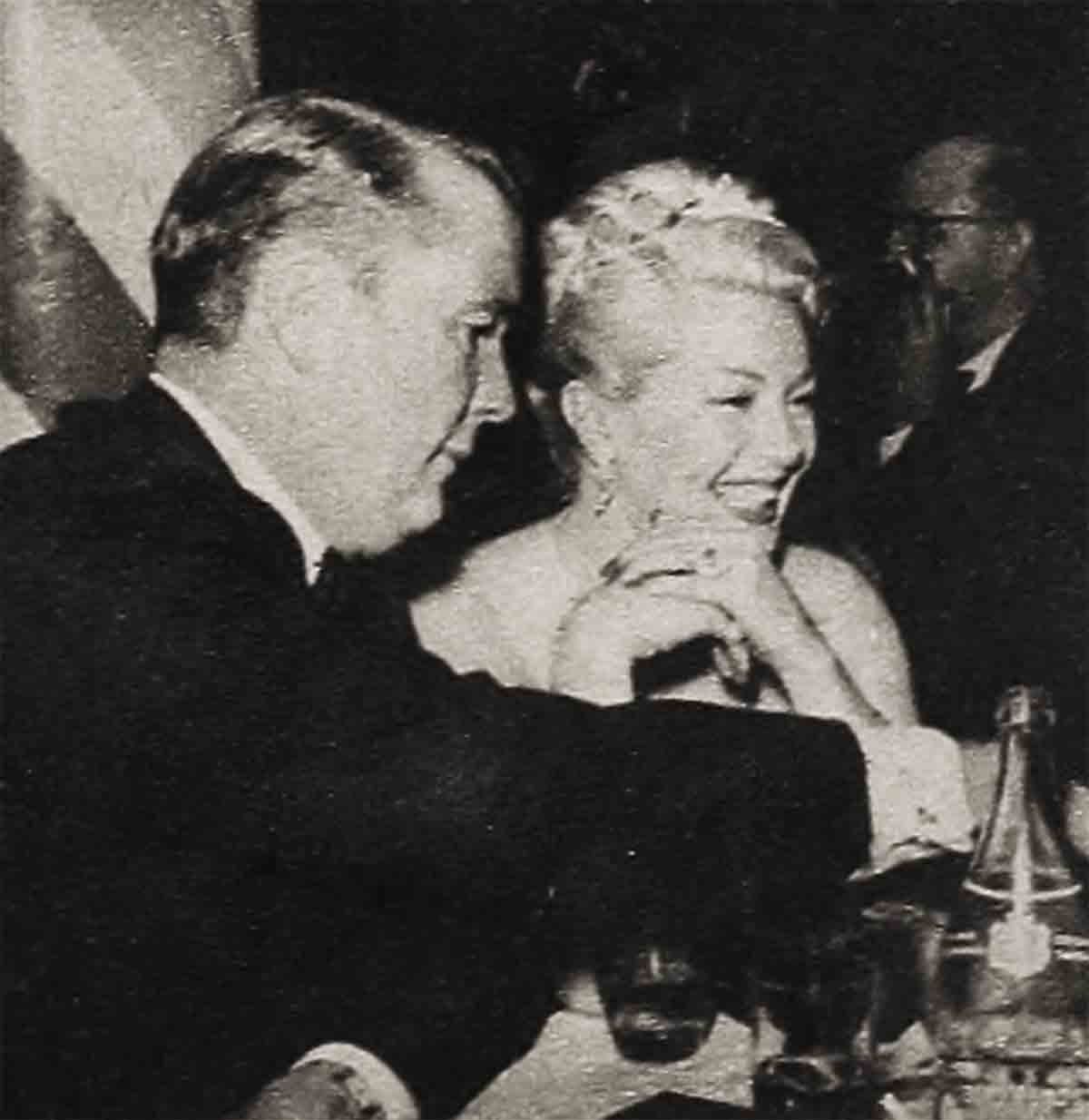
“I understand,” the reporter continued, “that this is going to be your last picture. I heard on the radio the other night that the only reason you’re making this one is because you want to buy your mother an insurance annuity.”
“That’s not true at all,” Lana answered. “My mother doesn’t need an annuity, and I have no intention of retiring even after my child is born.”
But the child Lana was carrying—as we all know now—was never born. Three weeks after Mr. Imperium was finished, Lana slipped on her floor at home. Bob Topping rushed her to St. John’s Hospital in Santa Monica, and Lana had no chance of determining whether the child might have lived with transfusions of new blood.
Fortunately for Lana, she never gives up or gives in. She never runs away from life. She runs to meet it no matter what it has to offer.
Less than a month after her miscarriage, she attended the premiere of All About Eve. Escorted by Bob, she looked as glamorous and beautiful as ever, although inwardly she may have changed.
She’s no longer the young girl who obeys her every impulse, who lives with a feverish gaiety, who airs all her troubles, who lives her private life in public. “I’ve given up night-clubbing,” she says. “We’re furnishing our home in Holmby Hills and we may build a vacation place up in Monterey or Oregon.”
Lana will not permit her home to be photographed, and she will no longer submit to the outlandish sweater stunts which brought in her first publicity. Her “planned” romance with young leading men like Peter Lawford is a thing of the past.
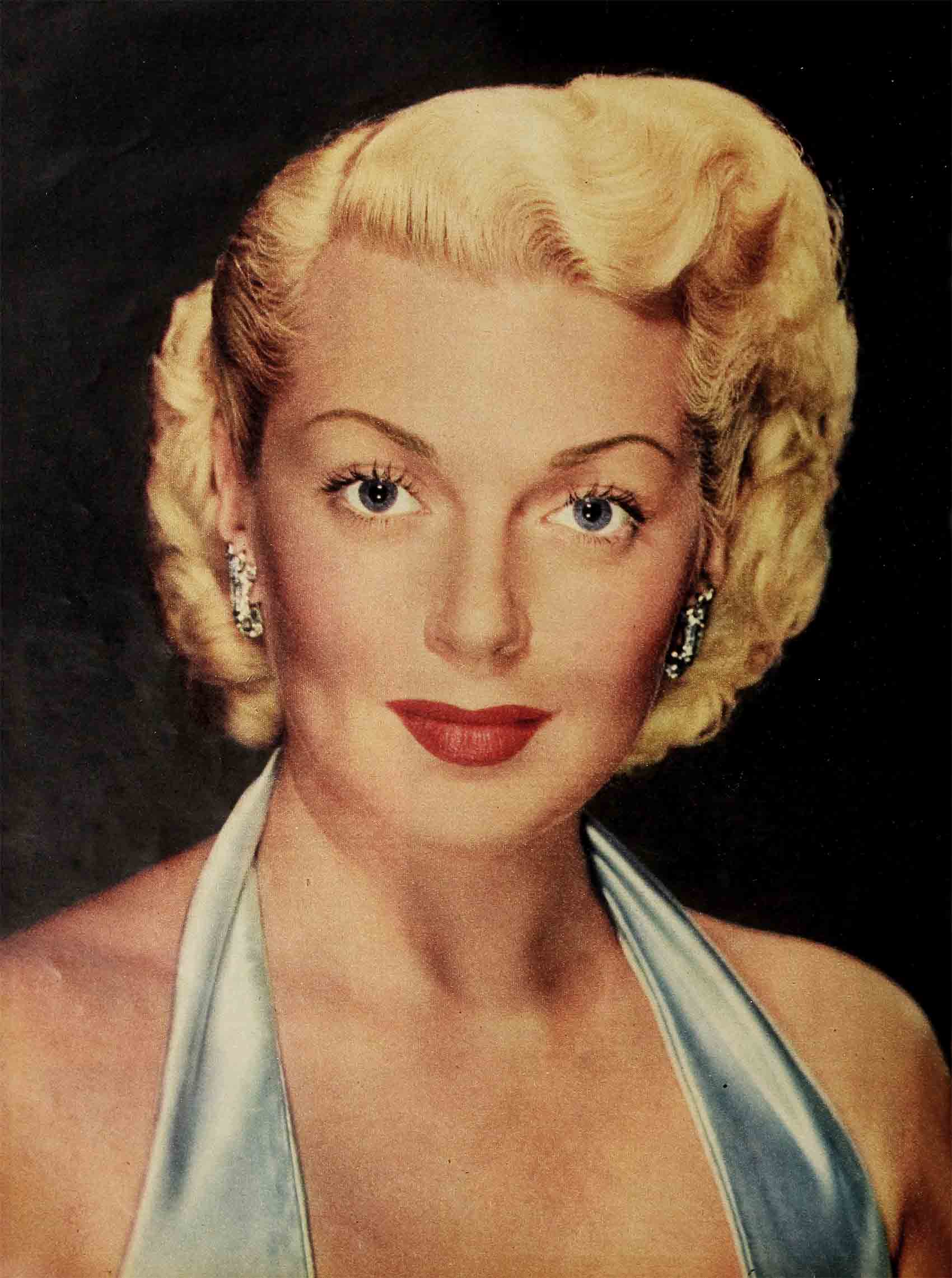
She has also had her name legally changed from Julia Jean Mildred Frances Turner to plain Lana Turner, and has cloaked all her recent actions with a new dignity.
Life has always treated Lana Turner roughly. Her father, Virgil Turner, was an itinerant miner. He was working in Wallace, Idaho, population 3,634, when Lana was born. One night when Lana was ten, and the family lived in San Francisco, Virgil Turner was mugged and murdered on a side street near the bay.
Fatherless and virtually penniless, with her mother working, ten-year-old Lana knew none of the comforts or the small luxuries that young girls should know—a new dress, an ice cream soda, a birthday party were rare, fantastic pleasures.
By the time Lana was 13, her mother decided to try their luck in Los Angeles. They packed three cheap suit cases with all their worldly possessions, and borrowed a friend’s car. Five miles out of Paso Robles, it suddenly began to pour. The old car skidded, hit a soft shoulder, teetered recklessly, and then turned over.
Two ribs broken, her face cut and bleeding, Lana managed to limp away from the wreck. “So long as I live,” she once told friends, “I’ll never forget that day. I wanted to cry, but I knew that crying wouldn’t do any good, so I got up and I tried to flag some cars. Finally, a truck-driver stopped and took us into Hollywood. That’s the way I got here—and I’ll never forget it.”
There is no point in going over Lana’s entire career. What is significant, however, is the perverse and recurrently bad luck that has constantly hounded her personal life. Every time Lana made a successful picture or her contract at the studio was re-optioned, she somehow found herself involved in an unhappy love affair.
There was Greg Bautzer, the popular Hollywood lawyer, now rumored in love with Ginger Rogers. Greg got hold of Lana when she was 17, and she fell tempestuously in love with him. She even told Joan Crawford, “I hope to marry Greg.” The hope was never fulfilled. Lana ran off to Las Vegas with Artie Shaw.
This marriage is listed in the books as one of the great mis-matings of all time. “If you put sex aside,” a friend of Artie’s said, “these two had absolutely nothing in common.” Shaw is primarily an intellectual. Lana is not. She attended Hollywood High School for fifteen days—no more—before she left.
Lana’s marriage to Shaw lasted seven months. Her second marriage to Steve Crane lasted six months. She filed for an annulment but when she discovered that she was pregnant by Crane, she remarried him on the night before he left for his Army induction. “I want my baby to have a normal life,” she explained.
The normal life never materialized. Crane’s acting ambitions, it was rumored, lay behind the dissolution of marriage number two. “Acting just isn’t right for most men,” Lana said at the time.
At this point, Lana’s career began to bloom. Her love-life did not. Of Turhan Bey, who courted her violently for a time and then stopped, she had this to say: “I don’t know whether I did something or someone told him something or what. He said he would call me and he never called and I never heard from him again . . . It’s so bad for me with Cheryl growing up to have everyone think I don’t know my own mind. I knew my mind for a long time about Turhan. Because of my little girl, I don’t want it said that I turn lightly and frivolously from one man to another.”
Certainly, Lana’s love for Tyrone Power wasn’t frivolous. She endangered her career by flying to Mexico to be with him. Supposedly, this was the great love match of the century. Lana, who used to wear her heart on her sleeve, held it in outstretched hands for him. When Linda Christian married Ty, Lana was crushed.
She tried not to show it, but her friends knew the truth. This was another kick in the teeth. Then, Lana met and married Bob Topping. The Hollywood wise-guys said she was marrying on the rebound, that the marriage would never last. They’re still saying it, only they’re not so sure any more.
When Lana honeymooned in England, the press raked her over the coals because she came late to a conference. When she returned to Bob’s family home in Connecticut, the gossips said she was ill-prepared to be mistress of the tremendous Topping mansion. When she went to 21, or the Colony, or the Copacabana in New York, it was said of Bob and Lana that they were constantly quarreling, that the quarrels must end in divorce.
When Lana found herself pregnant by husband Topping the first time, she knew nothing about the RH factor. When she found out about it—it was too late. The baby had died.
When she learned about the RH factor and tried to save this last child by transfusions of whole blood—she never got the chance.
If anyone ought to be sore at life, it should be Lana Turner. It’s given her money and fame but precious little happiness. However, she refuses to look back upon the past.
“When you’re as happy as I am,” she said three weeks before she lost her baby, “you have no thoughts for the past.”
Whether that still holds true, no one can say.
A friend who has known her ever since she first arrived in Hollywood, said recently, “Lana has been smart enough never to sit down and take inventory of her life. There has been too much sadness, too many men, too much death and love, and because of love, too much pain. For Lana there is only one thing—the future. Whether it brings her another child of her own, or whether she and Bob adopt one—I am sure that she knows in her heart that the future must be better than the past.”
THE END
—BY STEVE CRONIN
It is a quote. MODERN SCREEN MAGAZINE FEBRUARY 1951





No Comments